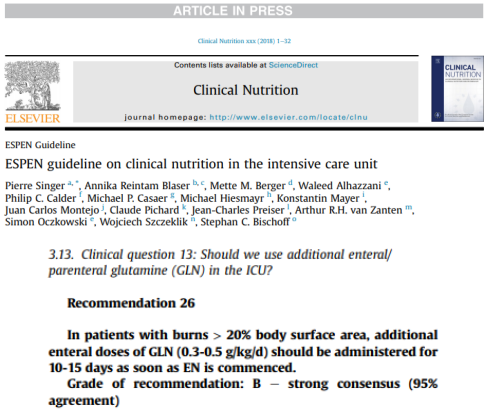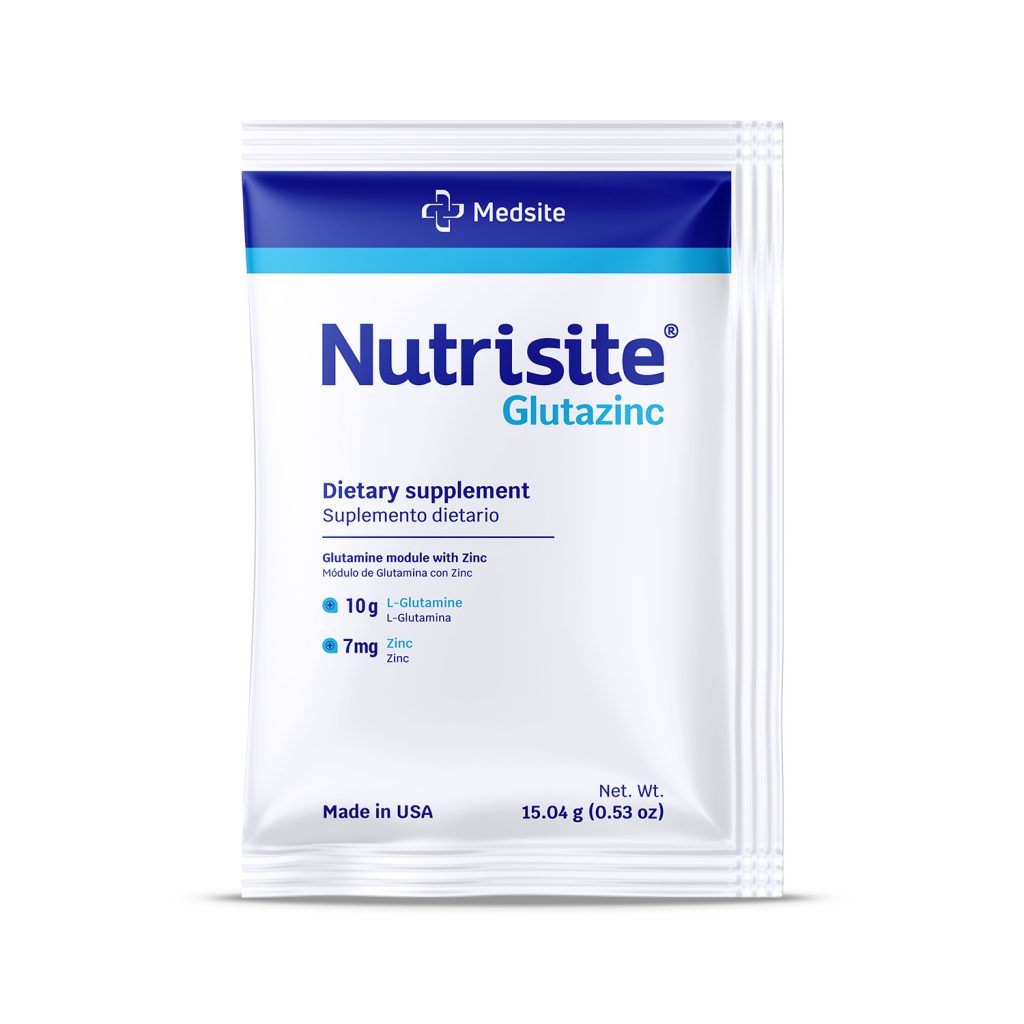Although few studies have been conducted with GLN in severely injured burn patients, existing randomized trials have shown (repeatedly) that its supplementation in patients in this condition has beneficial effects, reducing mortality and infectious complications (mainly major negative infections).
Clinical studies
In a small trial (45 people) but of good methodological quality, it was shown that supplementation with enteral glutamine resulted in a dramatic reduction in infections and mortality in patients with severe burns. (1)
An RCT in 20 trauma patients with delayed wound healing showed that GLN supplementation and oral antioxidants shortened wound closure time (22 days) versus (35 days): p ¼ 0.01). A decrease in plasma GLN was observed in control patients, while it was modestly increased in those supplemented with 20 g GLN/day for 14 days. (2)
In a well-conducted meta-analysis involving four trials (155 patients) GLN supplementation was associated with a significant reduction in infectious complications and bacteremia mortality.(3)
In 2014, the most recent randomized trial was published. It confirmed the reduction of infectious complications in 60 patients. (4)
The reduction in mortality and length of hospital stay, has been confirmed in the latest meta-analysis conducted in 2015 (5).
For such reason, the recommendation to supplement GLN in patients with severe burn injuries has been included in the ESPEN 2018 guidelines.

Possible negative effects of L-glutamine supplementation in the Redox and Metaplus studies?
The REDOX study included 40 ICUs in Canada, the United States and Europe. The 1,223 patients who participated in this trial were randomly selected with the following criteria: Critically ill adults on mechanical ventilation with two or more organ failures.
It is important to highlight that patients with burns were excluded from this study. The authors explained:
“Patients with major burns were excluded from the REDOXS trial because at the time it was considered unethical to withhold glutamine in this patient population.” (6)
The MetaPlus study, a randomized, double-blind, multicenter trial, was conducted between February 2010 and April 2012 and included a 6-month follow-up period in 14 intensive care units (ICUs) in the Netherlands, Germany, France and Belgium.
The intervention was conducted in a total of 301 adult patients and compared the effects of supplementation of an enteral feeding product enriched with glutamine, fatty acids, omega-3 and antioxidants compared to a high-protein enteral diet.
The bottom line: No statistically significant differences in infections (primary endpoint) or other endpoints were observed, except that patients receiving the fortified diet had an increased mortality rate at six months. (7)
This study only showed negative effects in medical ICU patients and not in surgical patients. It is noteworthy that patients with severe burns were not included.
It is essential to underline that patients with burn injuries are metabolically different and, from the point of view of protein/amino acid loss, compared to patients in the REDOXS and metaplus study.

Nutrisite® Glutazinc is a nutritional formula based on L-Glutamine and Zinc indicated for the treatment of patients under metabolic stress and oncology. Read more.



